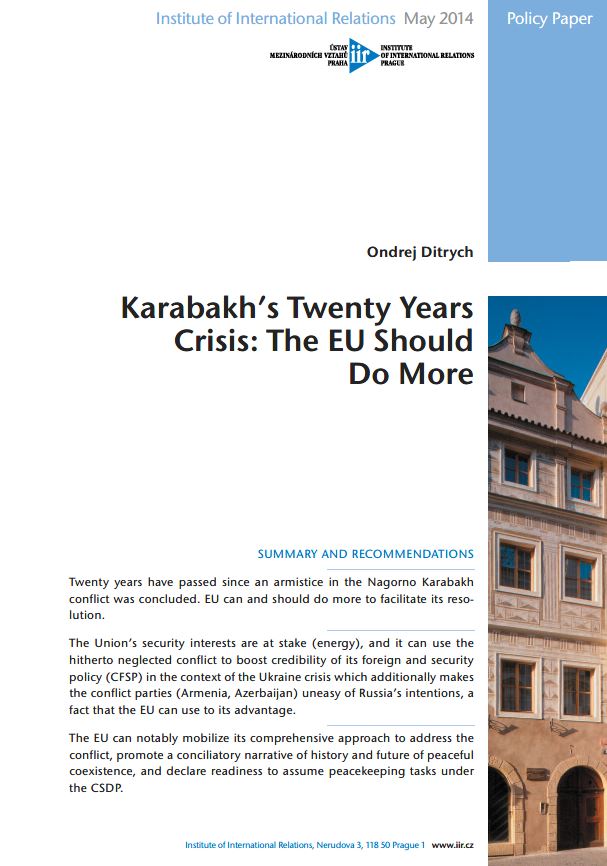Karabakh’s Twenty Years Crisis: The EU Should Do More
Karabakh’s Twenty Years Crisis: The EU Should Do More
Author(s): Ondřej Ditrych
Subject(s): International relations/trade, Security and defense, Transformation Period (1990 - 2010), Present Times (2010 - today), EU-Approach / EU-Accession / EU-Development, Peace and Conflict Studies
Published by: Ústav mezinárodních vztahů
Keywords: Nagorno Karabakh conflict; EU; foreign and security policy; 1994; Azerbaijan and Armenia; peace;
Summary/Abstract: Twenty years have passed since an armistice in the Nagorno Karabakh conflict was concluded. EU can and should do more to facilitate its resolution. The Union’s security interests are at stake (energy), and it can use the hitherto neglected conflict to boost credibility of its foreign and security policy (CFSP) in the context of the Ukraine crisis which additionally makes the conflict parties (Armenia, Azerbaijan) uneasy of Russia’s intentions, a fact that the EU can use to its advantage. The EU can notably mobilize its comprehensive approach to address the conflict, promote a conciliatory narrative of history and future of peaceful coexistence, and declare readiness to assume peacekeeping tasks under the CSDP. Twenty years ago, on 12 May 1994, a ceasefire came into effect that ended the war in Nagorno Karabakh. Ever since, uneasy truce exists between parties Azerbaijan and Armenia, parties to the conflict. Inflammatory rhetoric has proliferated; and periodical skirmishes along the line of contact have cost more than 3,000 lives. The EU, while designing an ambitious agenda to create a ring of peaceful and prosperous states in its neighbourhood, has so far eschewed more direct engagement. This policy paper argues that it should eschew it no longer, and outlines how it can do so without excessive commitment on its part.
Series: IIR - POLICY PAPERS
- Page Count: 6
- Publication Year: 2014
- Language: English
- Content File-PDF

